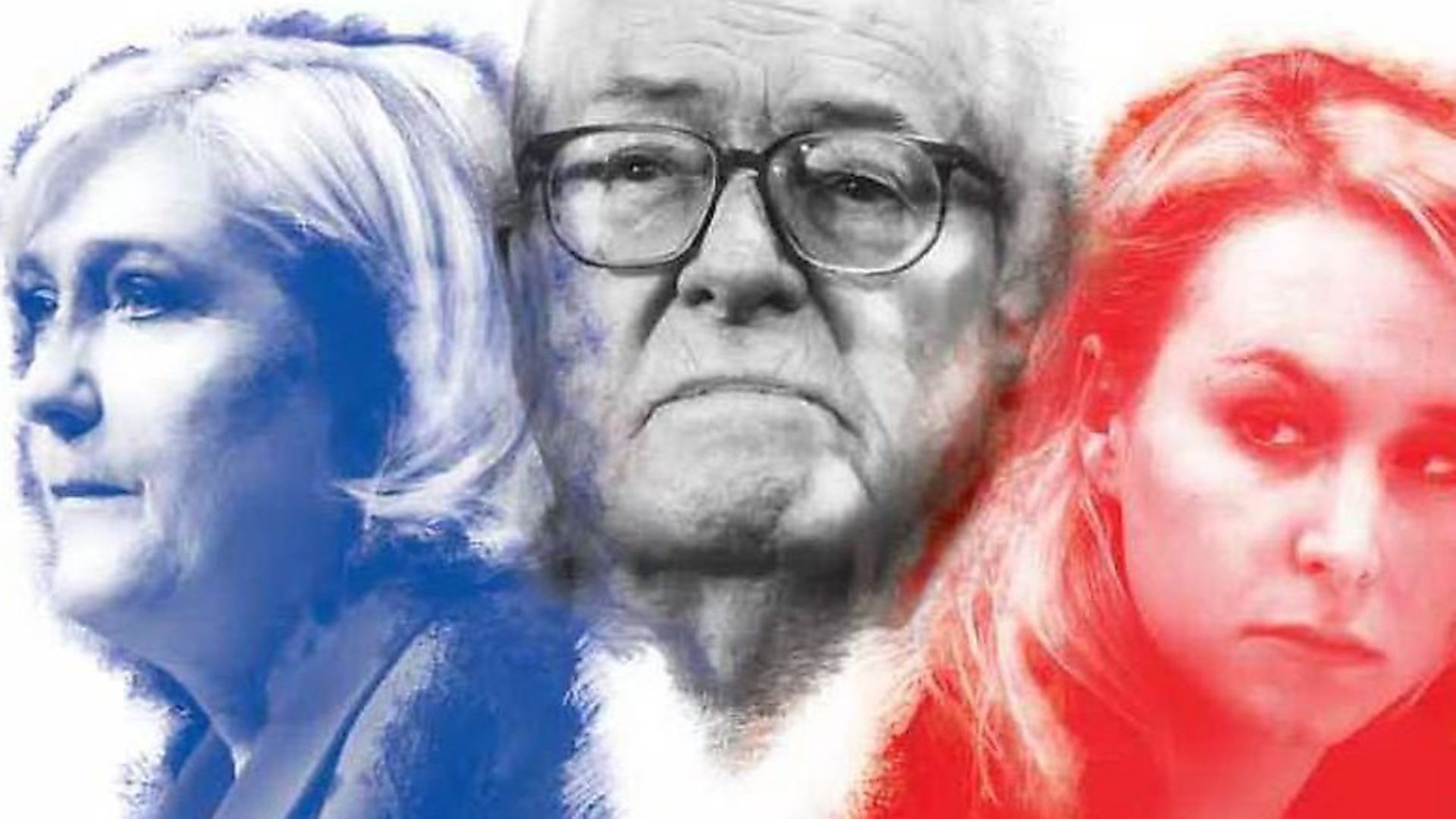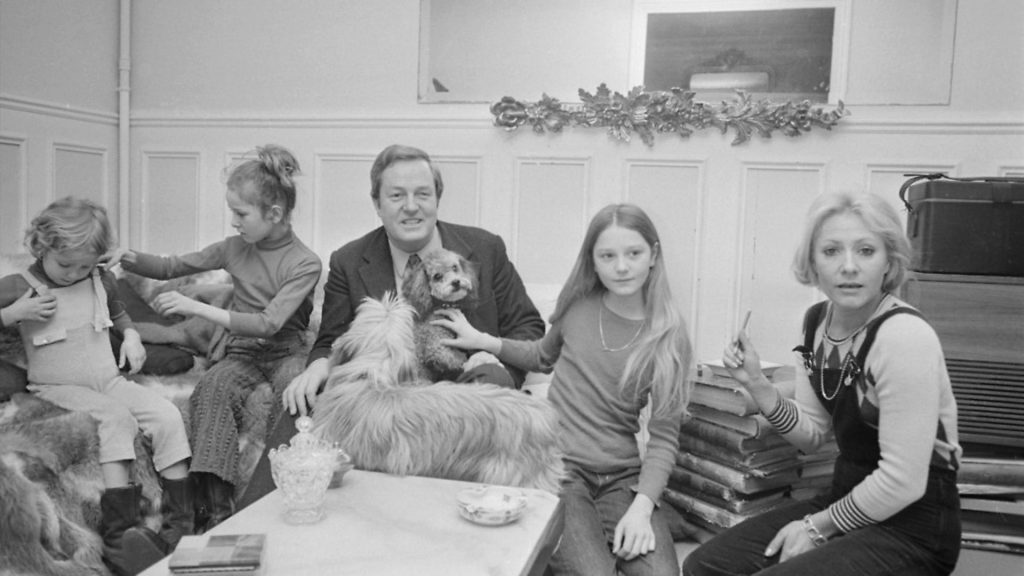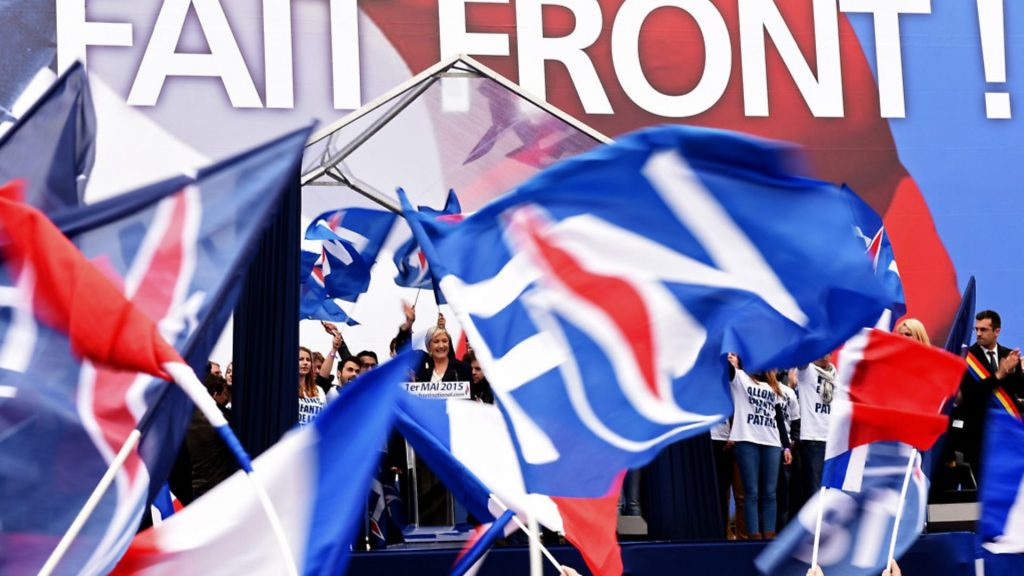
The French far right, through the generations, has mutated and adapted to the mood of the age. And already, the next generation is moving it in new directions

For you British, Le Pen is a difficult thing to understand.
You have discovered, with Brexit, a political violence which your history has preserved you from since Cromwell. Was it the authority of the Crown which appeased you over the centuries? Was it your empiricism that protected you against revolutionary utopias? Was it your Protestant traditions that meant you didn’t expect everything from the state?
Your parliamentary system has been a model of wisdom. So far, you have not needed a written constitution, nor regime change, to find democratic stability and to make xenophobic, extremist parties wade through insignificant margins.
We French live with the myth that the Revolution can achieve the impossible; that it is enough to cut off heads to change things; that the state will do all the job. We have not faced up to our complicated postcolonial history and we need ideologies to believe in something. We have the sad singularity of being the only European country where the extremes of the right and left remain so powerful, to have inherited from our history a weaker attachment to liberty. Our democratic foundations are infinitely more fragile than your own.

But times are changing, even at your place.
I can recall the times when Nigel Farage fidgeted alone in his corner of the European Parliament with a tiny British flag on his desk, vocalising in a wardrobe of yellow suits and pink dotted ties designed to attract attention. He did his act, reserving his jokes and pints of beer for the television cameras as he pocketed the salary paid him by an institution – created for solidarity, trade and peace among nations – about which he was already spreading deceit. We took him for a gentle English eccentric. In 2006, then Conservative leader David Cameron described UKIP voters as ‘fruitcakes, loonies and closet racists’. But Farage, who had no chance of getting elected to the House of Commons, understood before all others that the European forum would allow him to make a name for himself in the British media. Once Cameron became prime minister, and threatened by his right, he laid down in front of Farage and offered him his referendum.
At that time, Farage cautiously distanced himself from Marine Le Pen – not like now, when he interviews her, in smiling complicity, in his new guise as a radio presenter. He refused her hand in an alliance in the European Parliament. He knew that, even modernised, normalised and distinct from her father, she remained linked to a party which was too extreme for the British – a party where ‘anti-Semitic and racist roots are deep,’ Farage told me. But this was an appearance of respectability which wore a little thin with his own attacks on immigration echoing those of Le Pen, with whom he also shared admiration for Donald Trump and Vladimir Putin.
By his Atlanticism and free-trade nationalism, Farage would be closer to the Jean-Marie Le Pen of the 1980s, who admired Ronald Reagan, than today’s protectionist and statist Marine. And he has never had the association with extremist violence your National Front shared with older Le Pen or with the British National Party. But with Farage, Le Pen-ism came into your house like a Trojan horse, almost imperceptibly. Cameron had given in to him, over the referendum, and departed. Theresa May, who followed, gradually adopted his language – in utmost confusion, as her sudden declarations of love of Europe and the single market showed in her Article 50 letter. When the government finds no objection to the fact that a former Tory leader threatens Spain with warrior rhetoric over Gibraltar, it is a clear sign that a new British nationalism has arrived very quietly. History will begin with words.
At our place, the extreme right has the peculiarity of being both a party and a family, not to say a dynasty. From generation to generation, it adapts to its time, changes face and blurs its tracks.
Jean-Marie Le Pen, the glass eye commander, co-founded the National Front in 1972 on the principles of extreme nationalism and populism, a nostalgia for collaboration with Nazi Germany and for French Algeria, and unconstrained antiSemitism. It was a party of more or less confessed fascists.
Marine Le Pen has a different strategy than her father. Unlike him – who did not seek to govern and delighted in sulphurous and subversive opposition – from the beginning she has wanted to gain power. Since she became president of the party, she has worked to modernise and normalise it, and rid it, at least in appearance, of external signs of fascism. She fired her father, removed the visible racists and antiSemites. The term ‘extreme right’, applied to her party, has been disputed by her. She is our Trojan horse.
Her niece is even stronger: Marion Maréchal Le Pen, or the FN with a human face. The most extreme program of the right camouflaged as an angel blonde. The epitome of a strategy: that of a party tired of being at the margins and working to detoxify its image to get power. The FN’s showcase, intended to seduce the disaffected of the French right.
But between aunt and niece, war has begun. As she saw the younger woman leading a parallel campaign in Vaucluse, southern France, where Marion is an MP, Marine got worked up. In an interview with a women’s magazine, Marion declared that in the event of a victory, her niece – ‘still inexperienced’ and ‘a little stiff ‘ – would not be made a minister.
Marion did not like it. Newspapers have since reported her privately-expressed thoughts about her aunt: ‘Being a minister – I don’t give a damn. But ‘inexperienced’ – she exaggerates. It’s rubbish, I do the job.’ The pale, obedient blonde who stands quietly in the shadows might one day take her aunt away from the limelight.
For Marine, however, Marion is more than a niece. She raised her partly in the family mansion of Montretout, in the Paris suburb of Saint-Cloud, where Jean-Marie Le Pen still has his office. The young girl lived with her parents Yann Le Penn and Samuel Maréchal (who later divorced her mother) in a flat above the patriarch’s office (it later emerged her birth father was the photographer Roger Auque), while her aunts Marine and Marie-Caroline lived in the property at the bottom of the garden.
For Jean-Marie too, she is more than a granddaughter, although they meet rarely. It was she who he selected to appear with him on an electoral poster in 1992, aged just two, and with those angelic blonde curls. It was she who, 20 years later, he entrusted with the Vaucluse, a highly symbolic department for the FN, because it contains Carpentras, the city where, in 1990, a Jewish cemetery was desecrated. The Front was wrongly accused, and was able to engineer itself some victim status.
For the occasion, she decided to join her birth name – Maréchal – to that of her mother, Le Pen, in tribute to her grandfather. She became the youngest deputy in the history of France and, at the end of 2015, at the age of just 26, she almost won the wider Paca region (Provence Alpes Côte d’Azur), of which she is the darling. But above all, she is the one who most shares his vision. The most ideologically pure. ‘Marine is like a doctor, she’s a generalist,’ Jean-Marie Le Pen told me. ‘Marion is a nationalist Catholic. She embodies the true Front.’
At the age of 27, the last in the dynastic line, Marion represents both history and future. The succession is assured. She is La plus lepéniste of the Le Pens.
It is here that war begins, for between aunt and niece the struggle for power is a battle of ideas. In the Le Pen family, Marion is the hardest, the purest, the most right wing, the most conservative, the most Catholic, the most nationalist, the most identity-focused, the most ideological. ‘The true Front,’ as her grandfather says.
Marine is more pragmatic than ideological. Influenced by the National Front’s vice-president, Florian Philippot – who comes from the sovereigntist left and is interested in promoting a powerful state – the president gave the party a statist direction and refocused it on economic and social policies. Two directions, two regions. For Marine, the north, the region of communist and socialist workers who have switched to the National Front. For Marion, the south east, more conservative and more nervous about immigration. Unlike her aunt, who says the National Front is ‘neither right nor left,’ Marion Maréchal Le Pen feels clearly on one side. ‘I’m a right-wing woman,’ she insists.
Where does she get such ideological traditionalism? Montretout is not the best school in matters of conservatism and wisdom of manners. In the family, everyone divorces and gets angry. Marion is not the biological daughter of her father. Her grandmother Pierrette, mother of Marine and first wife of Jean-Marie, suddenly packed her bags, abandoning the girls and her husband for years. So determined was she to take revenge on the latter that she pinched his glass eye and posed nude for Playboy. Marine, also separated from the father of her children, left Montretout in 2014, the day she found Artemis, the cat she adored, killed by Sergeant and Major, the patriarch’s dogs. On a psychiatrist’s couch, Marion Maréchal Le Pen’s unconscious would have plenty to talk about. It would probably say she needed a rigid ideology to make her way in this mess of a family, characterised by break-ups and violence.
‘When one is a Le Pen, one is confronted at a very young age with hostility and aggressiveness,’ she explained to me, sitting in her office at the National Assembly. ‘At public school, I found my bag tagged, I was locked in the toilet. At home, it was death threats, handkerchiefs of blood in the mailbox…’ She remains thoughtful for a moment, she who usually never make stops in talking. ‘The clan side of our family comes from there. In politics, it is a strength. It makes you relatively indifferent to the value judgment of others and insensitive to the pressure of media polemics.’
La plus lepéniste of the Le Pens parks her black, battered Citroen C3, which has owned since she was 18, in the car park of the National Assembly. No particular signs mark her out: a slender silhouette, almost always dressed the same, in black trousers, black boots, black jacket, blonde hair loose, or quickly assembled in a bun. A normal young person of her time, already divorced, raising her two-year-old daughter alone. Riding her Suzuki on the roads of Vaucluse with her motorcycle buddies or escaping in the ocean on a wakeboard at the family house at La Trinité sur mer, in Brittany.
Is this the same person who calls their daughter Olympe – in tribute to a pioneer of feminism, guillotined in 1793 – and who, considering ‘inattentive’ women who resort to abortion, wants to withdraw subsidies for family planning? Is it the same woman who leads her life as a divorced mother and poses as a muse of traditional families in parades against homosexual marriage? Is it the same woman shimmying in a trendy Marseille nightclub who goes to war with ‘disturbed spirits’ and the bobos (hipsters) who ‘pretend to marvel at modern art’ and promises ‘a cultural policy worthy of the name… a popular culture where our heritage and our identity will be enhanced’? Is it the same for whom Muslims should not be allowed to be French, unless they ‘bend to the way of life passed down from the Christian history of the country’.
The young woman is as placid as Buddha. She has a face as smooth as a stone mask, which seems unable to be moved by anything – only upset by a slight squint, a little like her grandfather with his glass eye. She has impeccable speech, a selfassuredness to die for. The young politician controls everything, anger, laughter, annoyances. Her defeat in the Paca poll and the rise of Philippot in the party have vexed her. She has not let anything show.
His perfectionism borders on mania. Before an interview in front of a camera, she takes successive attempts to adjust her pony tail on her left shoulder. Nothing should be out of place. Not a single lock of hair. She is a plodder, a workaholic, who cannot stand being caught out.
A viral video shows her during her first campaign in Saint-Cloud in 2008: as she totally dries up when faced with a journalist’s simple question, she turns on her heels, in tears. During our interview, she came close to a wrong answer, which annoyed her furiously. Confidently discussing France’s future exit from the European Union and the euro zone – the foundation of the FN’s program – she talked about activating Article 55 … ‘You mean Article 50’? I ventured. There was a slight disturbance of her blond pallor and she remained silent for several seconds, looking at her fingers, before resuming her controlled, flowing tirade. Article 50, she won’t forget that again.
Theresa May is now celebrated by the National Front, cited as one who opened the way for the destruction of Europe. Marine Le Pen boasted of having inspired her program. What a feat! Your Prime Minister can be proud. Her Brexit, gained on lies and now entangled in unrealistic negotiations, may never happen. The May-Farage-Johnson axis will fall into oblivion. While in France, the Le Pens reproduce, their heads regenerate like the Hydra of Lerna.
Patiently, Marion Maréchal Le Pen discreetly counts her victories. She is pleased with the greater emphasis that Marine has placed on ‘identity’ and ‘security’ in her presidential election campaign. She is firmly established in the south east. She is favoured by the front’s most militant followers. At the last FN congress, in November 2014, she was first by far in the party elections, ahead of Philippot, who was only fourth.
She has no operational power in the party. But with symbolical power, she owns it, even though she says she might take a break and leave politics. Marine Le Pen can become president of the Republic next month: all the polls currently make her the loser in the second round, but the high numbers of undecided voters and a very low turn out could bring her victory. She can also lose. In either case, the other one is waiting for her time.
Marion Van Renterghem is reporter-at-large for Vanity Fair and this article is adapted from a piece in the current issue of the French edition of the magazine
© Marion Van Renterghem / Vanity Fair Franc









